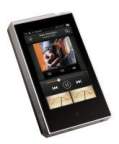- home Forum
- arrow_forward
- Advanced Topics
- arrow_forward
- Music, Home Theater, Gaming
- arrow_forward
- Today's humor
 Today's humor
Today's humor
-
 Offline
school
Offline
school
- Platinum Member
-

- arrow_drop_downMore arrow_drop_upLess
anthem
Posted
6 years 6 months ago
2 audiophiles talking. 1st one says, "Did you hear the sad news about Bob; he died of a sudden illness." 2nd audiophile says, "That's so sad, what did he have?" 1st audiophile replies, " Krell, Thiel, Theta, and Nordost."
D-Sonic m3a-600m Mono > McIntosh MC152 > Primaluna ProLogue Premium Preamp > Oppo UDP205 > Decware ZLC > Triton Reference > Isoacoustics Gaia 2 > Canare 4S11 Speaker Cables > Audience Forte 3, Anticable L3 & Shunyata Venom PC's
Every great performance deserves an Audience!
Every great performance deserves an Audience!
The following user(s) said Thank You: WayneWilmeth, rjohn79395
Please Log in or Create an account to join the conversation.
-
 Offline
school
Offline
school
- Platinum Member
-

- arrow_drop_downMore arrow_drop_upLess
anthem
Posted
6 years 6 months ago
Texas style audio extremism!
For those poor dweebs in audio who have under $50,000 systems, I thought I would give you a taste of “The Good Life”, as experienced by me with the help of my near-perfect stereo system. Those of you who think you can get away with mere $5,000 systems, may opt to consider running with scissors.
I had been at a trade show for the last three days, so I had to recheck the entire system prior to powering everything back up. First, I applied power to the individual environmental conditioning units (ECU) for each audio component. As we all know, each component has an optimal operating temperature, which can only be achieved with the most exacting temperature controls. I let the ECUs stabilize for two hours, resulting in a barely-acceptable temperature fluctuation of ±0.02° C. I then powered up the audio components and allowed another two hours for re-stabilizing. Temperature deviation was now ±0.04° C, which can lead to audible problems as the electrons speed up and slow down in passing from one component to the next. I was in a hurry, so I had to suffer with it.
Next up was a check on the liquid nitrogen baths surrounding the D/A converters. They were a pint low, so I topped them off, accidentally freezing one finger and breaking it off. Ahhh…the price one pays for top-notch audio. At this point, I noticed the room’s humidity was at 51 percent, one percent higher than the conditions prevailing during the recording session. After replacing the humidifier and recalibrating, things looked a little brighter. But, now I noticed that the 0-gauge speaker cables were going on three weeks old, which would mean that some oxygen may have crept into the copper. A quick cable check, using the ol’ electron microscope, had revealed copper-oxide levels at 0.0002 percent. Certainly audible to anyone knowing “reference-level” audio, so I replaced them.
Feeling adventurous, I decided to play a CD. Knowing full well that 64 bits and 198 Khz just isn’t enough to capture those subtle nuances – the conductor’s stomach grumbling, the sound of dust in the air conditioner within the next building – but they are convenient. However, as soon as the CD was out of its temperature-controlled storage, it hit me! I had forgotten to don my clean-room wardrobe prior to touching the CD! Doubtless, millions of dust specks had floated onto the disc surface, potentially causing countless correctable errors! So, I had to put the little sucker on the bench and go over it with an electron microscope again, until every particle was completely picked off. It was worth it, though, to be able to know with assurance, that there would be fewer corrected errors. I will admit that picking all those pieces of lint out of the surface pits, is a challenge!
Finally, the system was warmed up and ready to go. I carefully coated the CD with the standard “Armor-All” and Karo syrup, then slapped it into the player. First, the calibration run. The airborne robot floated about in its usual purposeful manner, looking for the “sweet-spot” between the speakers. Oh, I know that some of you wimps will say: “Doesn’t the sweet-spot stay the same? Why would you have to look for it each time?” Pshaw! Change that room temp by 0.1 degree, and tell me that sweet-spot hasn’t moved! It sure has! Some people will never know this because they’ve never heard a system like mine!
Once the exact listening position was located, I strapped into my $10,000 “Audiophile” chair, adjusted the stainless micrometer cranium-positioning spikes, minimizing all head excursions to less than 0.05cm in any direction, thus assuring precise stereo imaging. I then pressed “play” on the remote. Ahhhh…a vast 3D sound stage opened before me, stretching limitlessly in all directions. I could hear the dressing rooms behind the recording studio with perfect clarity. Reaching out to touch the palpable violins, I could mute the more strident performers by simply putting my hand over their instruments. Magnificent!
But, suddenly, an alarm sounded! The magnetic field strength meter indicated that my across-the-street neighbor had turned on some appliance, emitting enough fields to upset the entire D/A process and the amplification-chain! Very audible indeed! Distortion was up to 0.00002 percent and signals within 3db of the noise floor! Just horrible! I activated the auto-dialer with the remote control, selecting the standard “You are impinging upon my perfect listening environment! Please turn off all electrical devices and stand very still!” message for delivery. A minute latter, the noxious magnetic intrusion had ceased.
Finally getting a chance to listen to the music, I noticed a certain quality about the sound that was very audibly imperfect. With a start, I realized the problem. The sound of the oboists’ nose hairs, vibrating in tune with the music, was not as finely etched as it should have been. It took a while, but I located the problem. As I inhaled and exhaled, the environmental control units’ power consumption had fluctuated wildly (±0.000732 watts), causing the system’s input voltage to vary by as much as 10 to 13 volts. The result, of course, was an unacceptable frequency deviation in the CD playback (down 0.066db at 13 Khz!)…
For those poor dweebs in audio who have under $50,000 systems, I thought I would give you a taste of “The Good Life”, as experienced by me with the help of my near-perfect stereo system. Those of you who think you can get away with mere $5,000 systems, may opt to consider running with scissors.
I had been at a trade show for the last three days, so I had to recheck the entire system prior to powering everything back up. First, I applied power to the individual environmental conditioning units (ECU) for each audio component. As we all know, each component has an optimal operating temperature, which can only be achieved with the most exacting temperature controls. I let the ECUs stabilize for two hours, resulting in a barely-acceptable temperature fluctuation of ±0.02° C. I then powered up the audio components and allowed another two hours for re-stabilizing. Temperature deviation was now ±0.04° C, which can lead to audible problems as the electrons speed up and slow down in passing from one component to the next. I was in a hurry, so I had to suffer with it.
Next up was a check on the liquid nitrogen baths surrounding the D/A converters. They were a pint low, so I topped them off, accidentally freezing one finger and breaking it off. Ahhh…the price one pays for top-notch audio. At this point, I noticed the room’s humidity was at 51 percent, one percent higher than the conditions prevailing during the recording session. After replacing the humidifier and recalibrating, things looked a little brighter. But, now I noticed that the 0-gauge speaker cables were going on three weeks old, which would mean that some oxygen may have crept into the copper. A quick cable check, using the ol’ electron microscope, had revealed copper-oxide levels at 0.0002 percent. Certainly audible to anyone knowing “reference-level” audio, so I replaced them.
Feeling adventurous, I decided to play a CD. Knowing full well that 64 bits and 198 Khz just isn’t enough to capture those subtle nuances – the conductor’s stomach grumbling, the sound of dust in the air conditioner within the next building – but they are convenient. However, as soon as the CD was out of its temperature-controlled storage, it hit me! I had forgotten to don my clean-room wardrobe prior to touching the CD! Doubtless, millions of dust specks had floated onto the disc surface, potentially causing countless correctable errors! So, I had to put the little sucker on the bench and go over it with an electron microscope again, until every particle was completely picked off. It was worth it, though, to be able to know with assurance, that there would be fewer corrected errors. I will admit that picking all those pieces of lint out of the surface pits, is a challenge!
Finally, the system was warmed up and ready to go. I carefully coated the CD with the standard “Armor-All” and Karo syrup, then slapped it into the player. First, the calibration run. The airborne robot floated about in its usual purposeful manner, looking for the “sweet-spot” between the speakers. Oh, I know that some of you wimps will say: “Doesn’t the sweet-spot stay the same? Why would you have to look for it each time?” Pshaw! Change that room temp by 0.1 degree, and tell me that sweet-spot hasn’t moved! It sure has! Some people will never know this because they’ve never heard a system like mine!
Once the exact listening position was located, I strapped into my $10,000 “Audiophile” chair, adjusted the stainless micrometer cranium-positioning spikes, minimizing all head excursions to less than 0.05cm in any direction, thus assuring precise stereo imaging. I then pressed “play” on the remote. Ahhhh…a vast 3D sound stage opened before me, stretching limitlessly in all directions. I could hear the dressing rooms behind the recording studio with perfect clarity. Reaching out to touch the palpable violins, I could mute the more strident performers by simply putting my hand over their instruments. Magnificent!
But, suddenly, an alarm sounded! The magnetic field strength meter indicated that my across-the-street neighbor had turned on some appliance, emitting enough fields to upset the entire D/A process and the amplification-chain! Very audible indeed! Distortion was up to 0.00002 percent and signals within 3db of the noise floor! Just horrible! I activated the auto-dialer with the remote control, selecting the standard “You are impinging upon my perfect listening environment! Please turn off all electrical devices and stand very still!” message for delivery. A minute latter, the noxious magnetic intrusion had ceased.
Finally getting a chance to listen to the music, I noticed a certain quality about the sound that was very audibly imperfect. With a start, I realized the problem. The sound of the oboists’ nose hairs, vibrating in tune with the music, was not as finely etched as it should have been. It took a while, but I located the problem. As I inhaled and exhaled, the environmental control units’ power consumption had fluctuated wildly (±0.000732 watts), causing the system’s input voltage to vary by as much as 10 to 13 volts. The result, of course, was an unacceptable frequency deviation in the CD playback (down 0.066db at 13 Khz!)…
D-Sonic m3a-600m Mono > McIntosh MC152 > Primaluna ProLogue Premium Preamp > Oppo UDP205 > Decware ZLC > Triton Reference > Isoacoustics Gaia 2 > Canare 4S11 Speaker Cables > Audience Forte 3, Anticable L3 & Shunyata Venom PC's
Every great performance deserves an Audience!
Every great performance deserves an Audience!
Please Log in or Create an account to join the conversation.
-
 Offline
Offline
- Platinum Member
-

- Posts: 4595
- Thank you received: 7040
- Karma: 15
- arrow_drop_downMore arrow_drop_upLess
WayneWilmeth
Posted
6 years 6 months ago
Last edit: 6 years 6 months ago by WayneWilmeth. Reason: wrong one
info_outline
#23804
For our Texas friends
God Bless,
Wayne
God Bless,
Wayne
God bless the child that's got his own.
The following user(s) said Thank You: rjohn79395
Please Log in or Create an account to join the conversation.
-
 Offline
Offline
- Platinum Member
-

- Posts: 4595
- Thank you received: 7040
- Karma: 15
- arrow_drop_downMore arrow_drop_upLess
WayneWilmeth
Posted
6 years 6 months ago
God Bless,
Wayne
Wayne
God bless the child that's got his own.
The following user(s) said Thank You: Moderator, rjohn79395
Please Log in or Create an account to join the conversation.
-
 Offline
school
Offline
school
- Platinum Member
-

- arrow_drop_downMore arrow_drop_upLess
anthem
Posted
6 years 6 months ago
Yanny or Laurel?
Laurel
D-Sonic m3a-600m Mono > McIntosh MC152 > Primaluna ProLogue Premium Preamp > Oppo UDP205 > Decware ZLC > Triton Reference > Isoacoustics Gaia 2 > Canare 4S11 Speaker Cables > Audience Forte 3, Anticable L3 & Shunyata Venom PC's
Every great performance deserves an Audience!
Every great performance deserves an Audience!
Please Log in or Create an account to join the conversation.
-
 Offline
Offline
- Elite Member
-

- Posts: 160
- Thank you received: 287
- arrow_drop_downMore arrow_drop_upLess
HTSME
Posted
6 years 6 months ago
I have heard about this all day and listened to it too many times.
IMHO, it's Laurel.
Del
IMHO, it's Laurel.
Del
Please Log in or Create an account to join the conversation.
Moderators: Moderator
- home Forum
- arrow_forward
- Advanced Topics
- arrow_forward
- Music, Home Theater, Gaming
- arrow_forward
- Today's humor
menu
close
Menu
Account
-
-

- Call of Duty: Black Ops 6 - All Attack Safe Codes ...
- In Triton Series / Triton Towers
- by lalo233
- 11 hours 43 minutes ago
-
-
-

- Question Regarding SuperCinema 3D Array XL Center ...
- In Support / SuperCinema 3D Array
- by Moderator
- 2 days 17 hours ago
-
-
-

- Rumbling left speaker.
- In Write Your Own Review / Triton Series
- by Moderator
- 2 days 21 hours ago
-
-
-

- Triton Reference
- In Write Your Own Review / Triton Series
- by Moderator
- 3 days 22 hours ago
-
-
-

- Pair Triton One.Rs for sale $4500 Pennsylvania
- In Marketplace / For Sale/Trade
- by spdemon91
- 6 days 2 hours ago
-
search
close
person_outline
arrow_back


